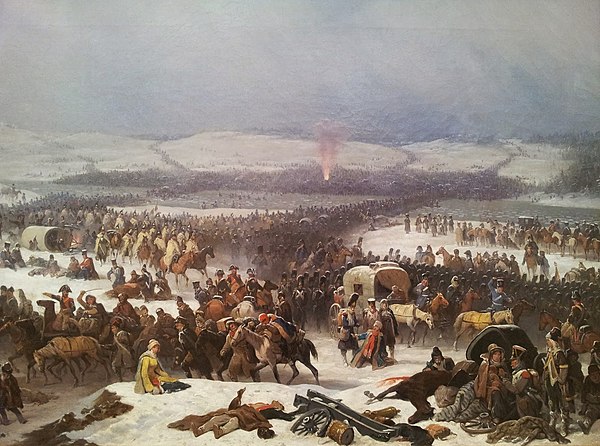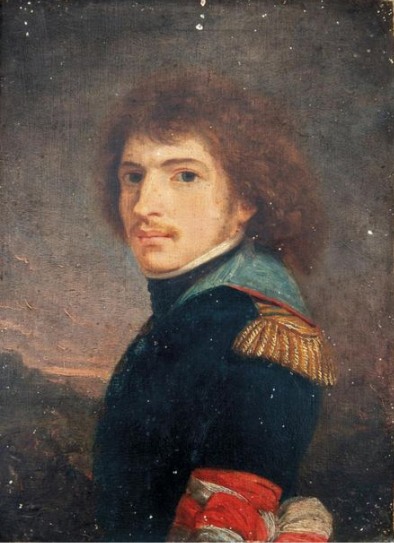The Russian victory over the French Army in 1812 was a significant blow to Napoleon's ambitions of European dominance. This war was the reason the other coalition allies triumphed once and for all over Napoleon. His army was shattered and morale was low, both for French troops still in Russia, fighting battles just before the campaign ended, and for the troops on other fronts. Napoleon alone was able to maintain any semblance of order; with his disappearance, Murat and the other officers lost all authority.
In January 1813 the French army gathered behind the Vistula some 23,000 strong. The Austrian and Prussian troops mustered some 35,000 men in addition. The number of deserters and stragglers having left Russia alive is unknown by definition. The number of new inhabitants of Russia is unknown. The number of prisoners is estimated at around 100,000, of whom more than 50,000 died in captivity.
The War of the Sixth Coalition started in 1813 as the Russian campaign was decisive for the Napoleonic Wars and led to Napoleon's defeat and exile on the island of Elba. For Russia, the term Patriotic War (an English rendition of the Russian Отечественная война) became a symbol for a strengthened national identity that had a great effect on Russian patriotism in the 19th century. A series of revolutions followed, starting with the Decembrist revolt of 1825 and ending with the February Revolution of 1917.

























